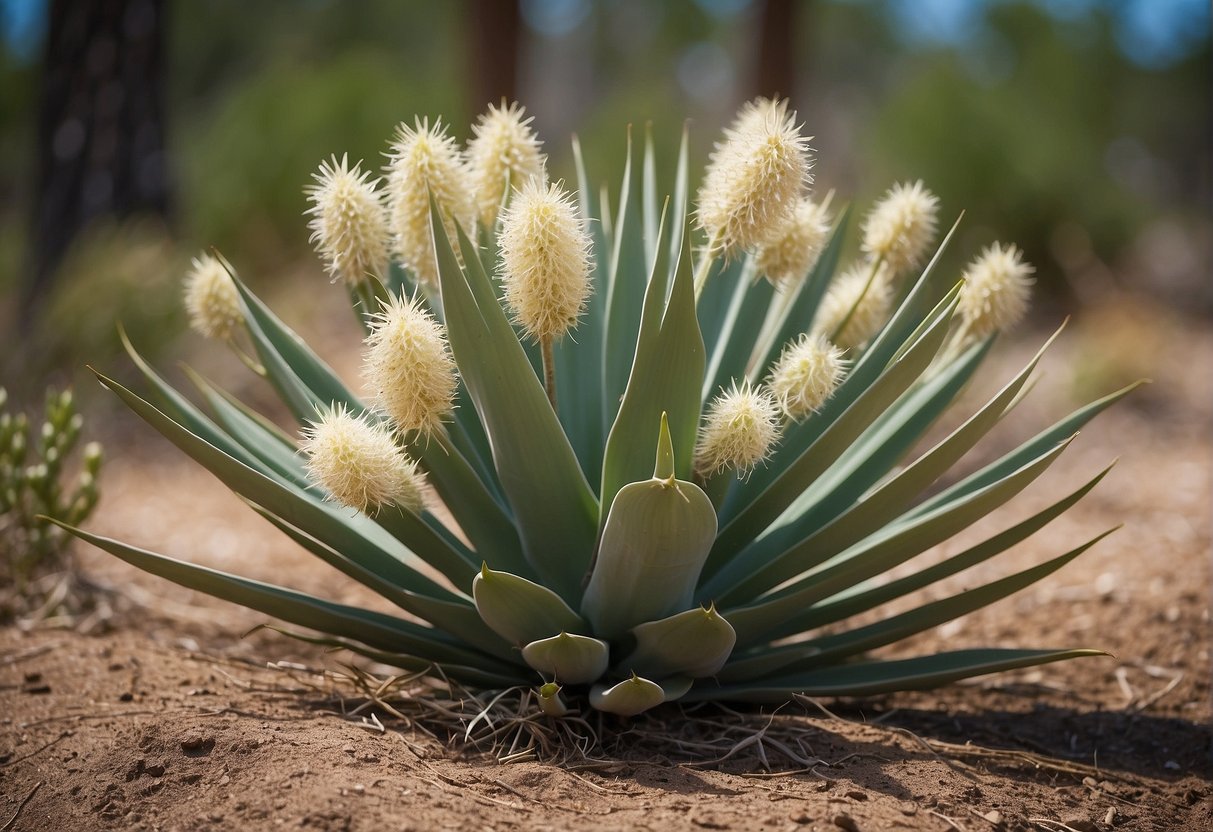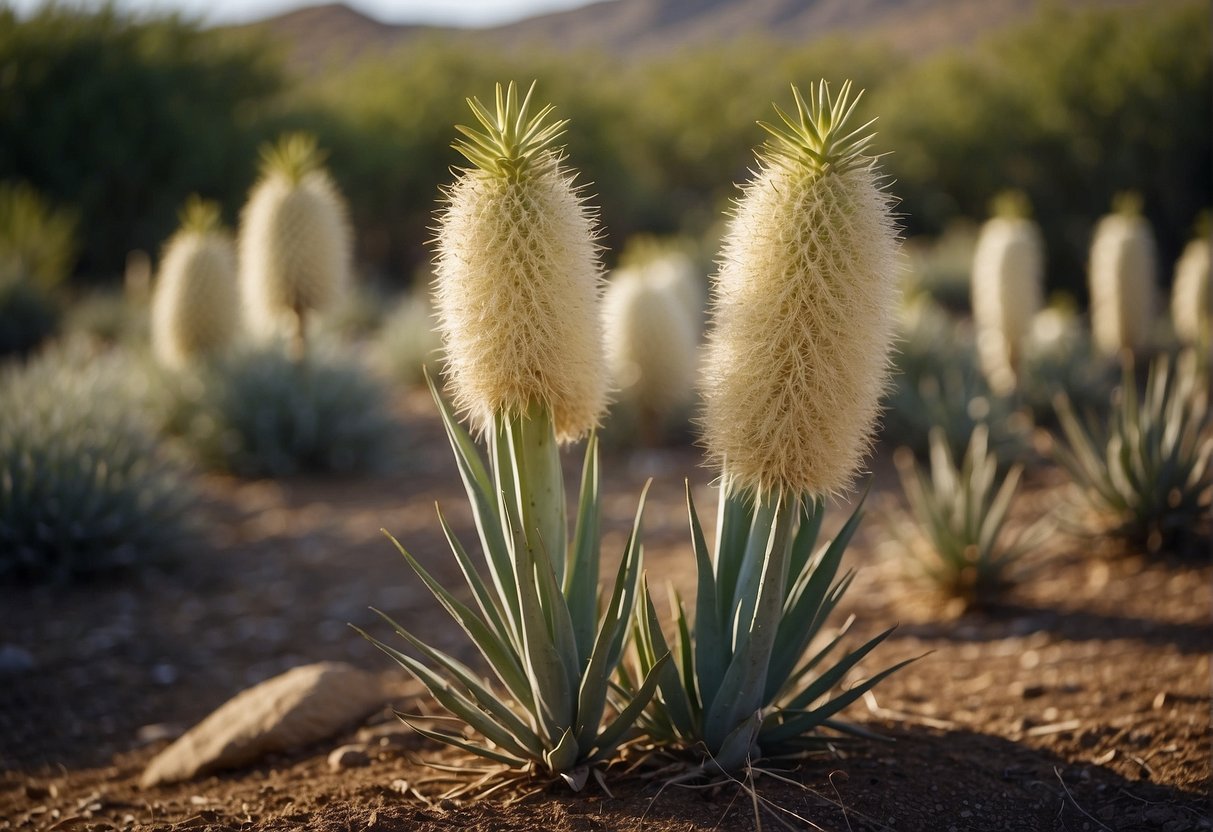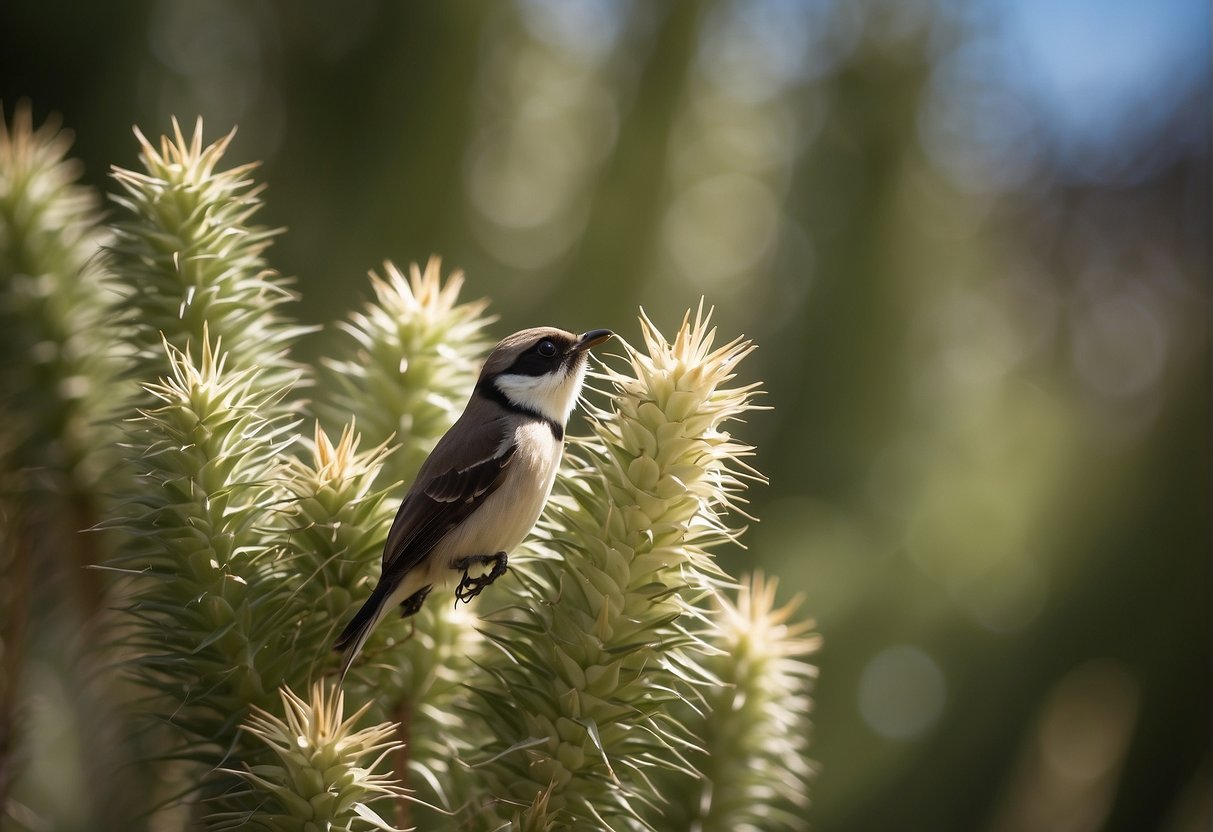Should you ever have ventured through a desert landscape, it’s probable that you encountered a yucca plant. These pointed, water-storing plants are frequently observed in the dry areas of North America and have served various human needs including nourishment, medicinal purposes, and more, over many years. However, concerning the desert-dwelling wildlife, what roles do yucca plants play in their lives?

As it turns out, yucca plants are an important part of many desert ecosystems. They provide food and shelter for a variety of wildlife, from insects to birds to mammals. Some animals even rely on yucca plants exclusively for survival, using them as a source of both food and water. In this article, we’ll explore the ecological importance of yucca plants and take a closer look at how wildlife uses them in the wild.
Key Takeaways
- Yucca plants are an important part of many desert ecosystems and provide food and shelter for a variety of wildlife.
- Some animals rely on yucca plants exclusively for survival, using them as a source of both food and water.
- Understanding the ecological importance of yucca plants can help us better appreciate and protect these unique desert species.
Ecological Importance of Yucca Plants

Yucca plants play a vital role in the ecosystem, providing food and habitat for a variety of wildlife species. They are also important for pollinators, particularly yucca moths, which have a unique relationship with yucca plants.
Yucca and Pollinators
Yucca plants rely on yucca moths for pollination. The female yucca moth collects pollen from the yucca flower and then deposits it on the stigma of another flower, allowing for fertilization. The moth also lays her eggs inside the flower, where the larvae feed on some of the developing seeds. This relationship is essential for the survival of both the yucca plant and the yucca moth.
Wildlife and Yucca Habitat
Yucca plants provide important habitat for a variety of wildlife species. The dense foliage and spiky leaves of yucca plants offer protection and shelter for small animals, such as rodents and lizards. The flowers and fruit of yucca plants are also an important food source for many animals, including birds, bats, and insects.
Conservation efforts to protect yucca plants and their habitat are crucial for maintaining healthy ecosystems. By preserving yucca plants and their associated wildlife, we can ensure the continued functioning of these ecosystems and the services they provide.
Yucca Plants in Human Use and Culture

Yucca plants have been used by humans for centuries for various purposes. From traditional to modern products, yucca has been an important part of human culture.
Yucca in Traditional and Modern Products
Yucca fibers have been used to make rope, baskets, and sandals by Native Americans for centuries. In modern times, yucca extract is used in the production of soaps and shampoos. The anti-inflammatory properties of yucca extract make it a popular ingredient in natural remedies.
Cultivation and Landscaping with Yucca
Yucca’s decorative appeal and hardiness make it a popular choice for landscaping. Its variegated foliage adds a touch of color to gardens, while its drought tolerance and productivity make it ideal for xeriscaping. Yucca is also easy to cultivate and requires minimal maintenance.
If you’re looking to add a touch of southwestern charm to your garden, consider incorporating yucca plants into your landscaping. With its unique beauty and versatility, yucca is sure to make a statement in any garden design.
Frequently Asked Questions
How do various animals benefit from yucca plants?
Yucca plants provide a variety of benefits to different animals. For example, the fruit of the yucca plant is a food source for many animals, including birds, rodents, and insects. Additionally, the yucca plant provides shelter and habitat for a variety of wildlife, including birds and small mammals. Some animals also use the plant’s fibers for nesting material.
What is the significance of the yucca plant in an ecosystem?
The yucca plant plays an important role in many ecosystems. It is a keystone species, meaning that it has a disproportionately large impact on its environment compared to its abundance. The yucca plant is particularly important to the yucca moth, which relies on the plant for food and shelter. The yucca moth is the only insect that can pollinate the yucca plant, making the plant’s survival dependent on the moth’s existence.
How do yucca moths interact with yucca plants?
Yucca moths and yucca plants have a unique and mutually beneficial relationship. The yucca moth lays its eggs in the flowers of the yucca plant, and in doing so, pollinates the plant. The moth larvae then feed on the developing seeds of the plant, but only enough to ensure that some seeds are left to mature and produce new plants. This allows the yucca moth and the yucca plant to coexist in a sustainable way.
What species commonly feed on yucca plants?
Many species of animals feed on yucca plants, including birds, rodents, and insects. The yucca plant’s fruit is particularly important as a food source for many animals. The fruit is high in sugar and provides a good source of energy, making it an important food source, especially during the winter months when other food sources may be scarce.
In what ways are yucca plants important to local wildlife?
Yucca plants provide a range of benefits to local wildlife. They provide food, shelter, and habitat for a variety of animals, including birds, small mammals, and insects. The plant’s fibers are also used by some animals for nesting material. Additionally, the yucca plant is an important part of many ecosystems, playing a key role in the survival of the yucca moth and other species.
Are there any risks to wildlife from consuming yucca plants?
While yucca plants are an important food source for many animals, there are some risks associated with consuming them. The plant contains saponins, which can be toxic in large quantities. However, most animals that feed on yucca plants have adapted to this and are able to tolerate the saponins. As with any food source, it is important for animals to consume yucca plants in moderation to avoid any potential negative effects.














